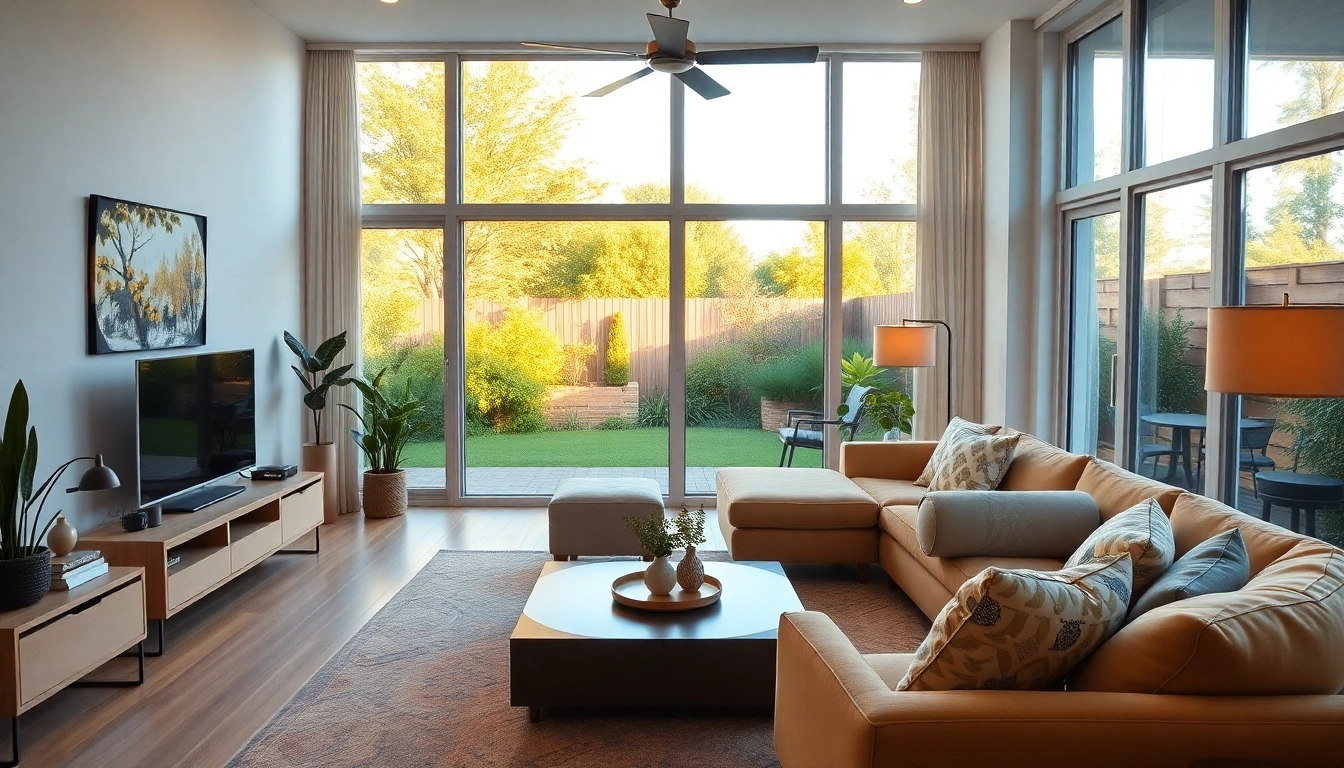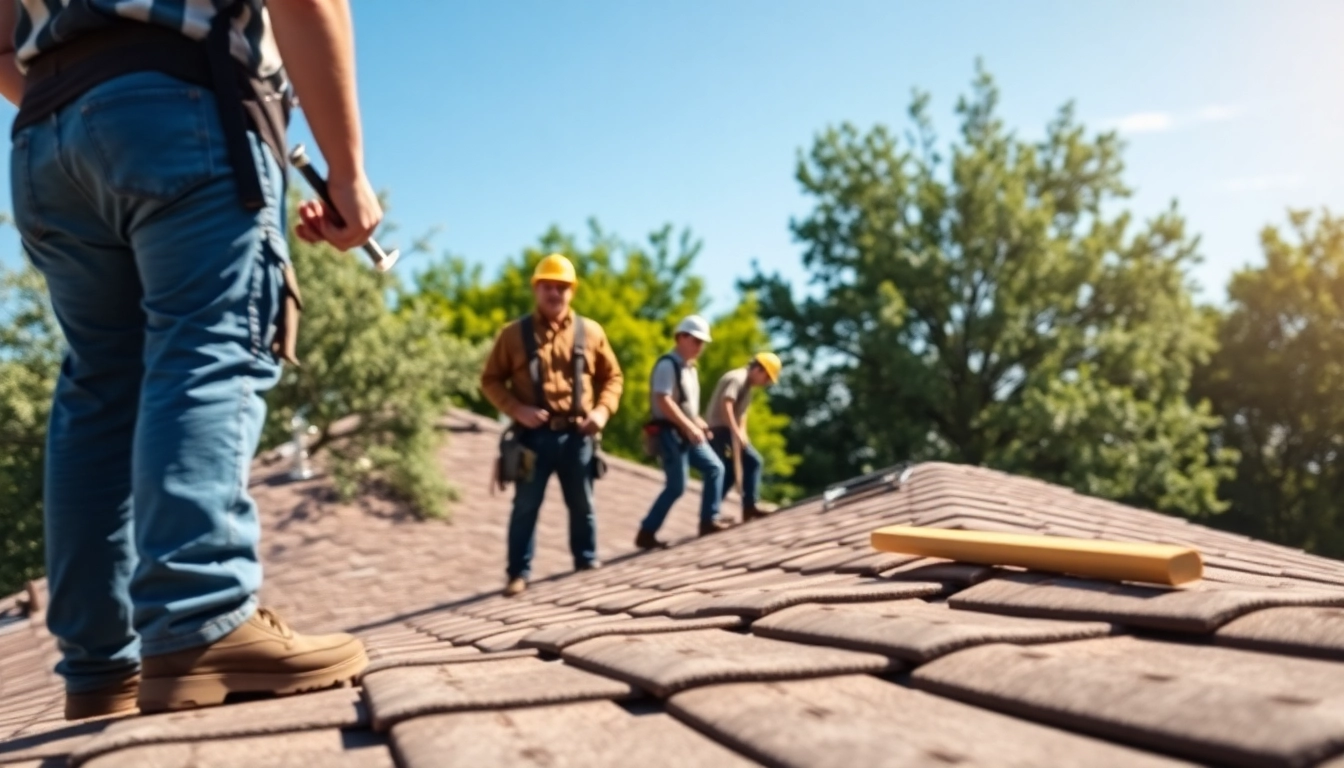Understanding Airbnb Houses for Sale
The real estate market is evolving rapidly, with the rise of platforms like Airbnb reshaping how investors approach property ownership. Today, individuals looking to invest in real estate are increasingly turning to airbnb houses for sale as a lucrative option. But before diving in, it’s crucial to understand what makes an Airbnb property truly profitable and how to navigate the marketplace effectively.
What Makes an Airbnb Property Profitable?
The profitability of an Airbnb property hinges on various factors, including location, property type, pricing strategy, and guest experience. Understanding these elements can help investors gauge potential returns on their investment.
- Location: Properties in sought-after areas tend to attract more guests. Factors like proximity to tourist attractions, city centers, or serene landscapes play a significant role in determining location desirability.
- Property Type: Different types of properties serve different markets. For example, a cozy apartment may appeal to solo travelers, while a spacious house is ideal for families or groups.
- Pricing Strategy: Competitive pricing can make a significant difference. Understanding the local market, and establishing the right rate based on demand can help maximize occupancy rates.
- Guest Experience: Positive reviews lead to repeat bookings. Exceeding guest expectations through amenities, cleanliness, and positive interactions can turn a property into a sought-after rental.
Key Features of Desirable Airbnb Houses
Investors looking for profitable Airbnb properties should prioritize certain features that attract guests. Here’s a list of desirable amenities:
- Unique Ambiance: Properties with character, such as historic homes or modern architectural designs, often stand out.
- Top-notch Amenities: Features like a hot tub, pool, or premium kitchen appliances can justify a higher nightly rate.
- Convenient Location: Accessibility to public transport and essential services enhances the attractiveness of a property.
- Safety and Security: Offering a safe environment, whether it’s through good lighting or security systems, can be a huge selling point.
- Internet and Connectivity: Fast, reliable internet is crucial, especially as many travelers are now remote workers.
Market Trends and Insights for Investors
Understanding current market trends is vital for making informed investment decisions. Here are some prevailing trends in the Airbnb market:
- Growing Demand for Short-Term Rentals: The demand for short-term rentals continues to rise, as more travelers prefer the comfort and unique experiences that Airbnb offers compared to traditional hotels.
- Increased Competition: With more properties entering the market, standing out through superior marketing and guest services is essential.
- Dynamic Pricing Tools: Many hosts are now utilizing technology that adjusts pricing based on demand, seasonality, and local events, leading to better revenue management.
- Popularity of Unique Stays: Unique accommodations, such as cabins, tiny homes, and luxury villas, are becoming increasingly popular, leading to higher occupancy rates.
How to Evaluate Potential Airbnb Investments
When seeking to invest in an Airbnb property, thorough evaluation is crucial in minimizing risks and maximizing returns. The following steps can guide your investment evaluation process:
Location Analysis: The Heart of Airbnb Success
The importance of location in real estate cannot be overstated, especially for Airbnb investments. Analyzing the local market dynamics goes beyond mere geography:
- Tourist Appeal: Identify areas with a strong influx of tourists. Attractions, parks, and historical sites can boost the demand for rentals.
- Local Regulations: Ensure the area permits short-term rentals and understand any applicable restrictions, which differ greatly from place to place.
- Demographic Trends: Analyze the local demographic to determine the target guest profile. Areas popular with younger guests might require different amenities compared to family-oriented neighborhoods.
Assessing Property Condition and Amenities
A property’s condition directly affects its marketability. Investors should conduct a comprehensive assessment, including:
- Inspection: Hire professionals to inspect structural integrity, plumbing, and electrical systems to uncover any hidden issues.
- Renovation Potential: Evaluate if cosmetic upgrades or renovations can significantly enhance property value and marketability.
- Amenities Assessment: Assess existing amenities and consider adding popular features that could attract more guests.
Financial Metrics to Consider When Investing
Understanding potential financial returns is essential before making a purchase. Key metrics include:
- Cap Rate: Calculate the capitalization rate by dividing the net operating income by the property’s purchase price to understand expected returns.
- Cash Flow: Analyze monthly cash flow by subtracting operating expenses from revenue. Positive cash flow means the property is self-sustaining.
- Occupancy Rate: Assess average occupancy rates for similar properties in the area to expect revenue generation timelines.
- Return on Investment (ROI): Consider total investment vs. expected annual profits to evaluate if the property is a viable investment.
The Buying Process for Airbnb Houses
Purchasing an Airbnb property involves several steps, from initial search to closing the deal. Here’s a step-by-step guide:
Step-by-Step Guide to Purchasing
Embarking on the Airbnb buying journey requires a structured approach. Here’s how to navigate it:
- Research Market: Identify target markets with profitable Airbnb opportunities.
- Create a Budget: Establish a budget that includes purchase price, renovations, and ongoing expenses.
- Engage Experts: Work with real estate agents who specialize in investment properties.
- Visit Properties: Evaluate potential properties to assess their condition and suitability for Airbnb rentals.
- Make an Offer: Upon identifying the right property, make a competitive offer based on market analysis.
- Close the Deal: Collaborate with a real estate attorney to ensure a smoother closing process and key transfer.
Negotiating Price and Closing Costs
Negotiation plays a crucial role in securing a profitable deal. Here are tips to effectively negotiate:
- Be Prepared: Understand the local market value and have comparable sales data to support your offer.
- Start Below Asking Price: Initiate your offer lower than the asking price to allow room for negotiation.
- Expect Counter Offers: Be ready for counters and be flexible to adjust your offer based on the property’s condition and seller motivation.
- Closing Costs: Know the typical closing costs, which can range from 2% to 5% of the property’s purchase price and ensure these are considered in your budget.
Understanding Financing Options Available
Investors have various financing options available for purchasing Airbnb properties. Here are the most common:
- Conventional Loans: Standard mortgage options available through banks and credit unions, requiring a down payment.
- FHA Loans: Government-backed loans that allow lower down payments and are suitable for first-time investors.
- Portfolio Loans: Loans provided by banks that don’t sell their mortgages; can be useful for unique properties that may not qualify for conventional financing.
- Hard Money Loans: Short-term loans based on property value, suitable for investors looking to flip houses quickly.
Legal Considerations When Owning an Airbnb
Owning an Airbnb property entails understanding the legal landscape, which can differ significantly based on location. Key areas to consider include:
Licensing and Permits for Airbnb Operations
Many cities have specific regulations regarding short-term rentals. Here’s what you need to know:
- Check Local Laws: Consult local government websites to verify specific requirements for operating an Airbnb.
- Obtain Necessary Permits: Depending on the location, you may be required to secure a rental license, register your property, or pay occupancy taxes.
- Continuous Compliance: Stay up-to-date with any changes in local ordinances to ensure ongoing compliance.
Local Regulations Affecting Short-Term Rentals
Each locality may impose regulations that can affect your operations, such as:
- Rent Control Laws: Be aware of local laws limiting the number of days a property can be rented short-term.
- Noise Ordinances: Many towns have noise restrictions in place that could affect guests’ behavior and your rental reputation.
- Homeowner Association Rules: If the property is part of an HOA, check its rules regarding short-term rentals.
Insurance Needs for Airbnb Properties
Insurance is a critical aspect of safeguarding your investment. Considerations include:
- Short-Term Rental Insurance: Specialized insurance that covers damage beyond typical homeowner’s policy protections.
- Liability Coverage: Protects you from claims arising from guest injuries or property damage during their stay.
- Equipment Protection: Ensure coverage for furnishings and amenities that may be damaged or stolen.
Maximizing Returns on Your Airbnb Property
To ensure consistent profitability, implement strategies designed to enhance guest experience and optimize operations:
Effective Marketing Strategies for Your Listing
Your property needs to shine in a crowded marketplace. Here are some effective marketing tips:
- Professional Photography: Invest in high-quality photographs that showcase your property’s unique features.
- SEO Optimized Listing: Use targeted keywords to optimize your listing, helping it rank higher in search results.
- Engaging Descriptions: Write compelling descriptions emphasizing key selling points and nearby attractions.
- Dynamic Pricing: Utilize tools that recommend pricing based on demand to maximize revenue opportunities.
Tips for Enhancing Guest Experience
Guest satisfaction is paramount for garnering 5-star reviews and repeat business:
- Personal Touch: Welcome guests with a personalized message or small gifts to create a memorable experience.
- Cleanliness: Maintain high cleaning standards to meet guest expectations and enhance reviews.
- Responsive Communication: Engage with guests promptly before and during their stay, ensuring any issues are addressed quickly.
Long-Term Management of Airbnb Properties
Managing an Airbnb incorporates ongoing responsibilities, including:
- Regular Property Maintenance: Schedule frequent check-ups to ensure the property remains in top condition.
- Guest Reviews: Encourage reviews post-stay and respond to feedback to build engagement and model positive guest relations.
- Market Analysis: Continuously analyze market trends and adjust your strategies based on occupancy rates, seasonal changes, and guest feedback.



